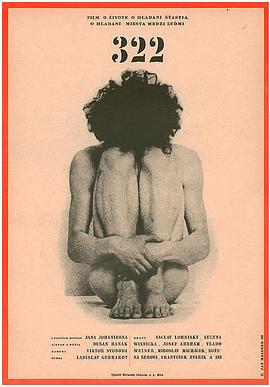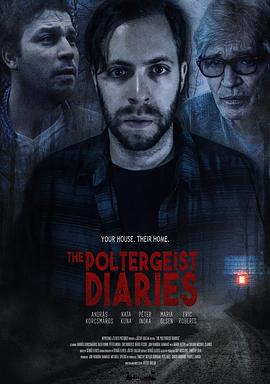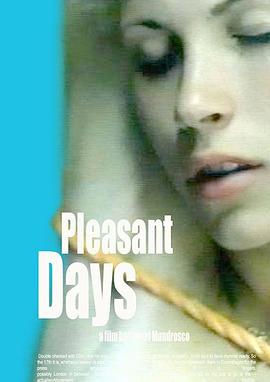搜索词:Zsuzsa Horváth
母亲与疯子们
Eszter Ónodi,蒂伯·加斯帕尔,Petra Hovanyecz,György Barkó,朱利·芭丝蒂,达努塔·沙弗拉尔斯卡,Bálint Adorjáni,Kata Bartsch,Péter Bozsó,Csege Buvári,Kincsö Buvári,Lilla Buvári,Villö Buvári,Bálint Bán,维拉格·巴拉尼,Katinka Cseke,安东尼·塞尔纳,Mari Csomós,Ibolya Csonka,卡塔琳·真哲希,Zsuzsa Horváth,维卡·
电影回顾了匈牙利风雨飘摇的20世纪。一位92岁的匈牙利女性在与五十多岁女儿的对话中,回顾了她惊心动魄的一生。她成长于匈牙利动荡的年代,与一位帅气的军人一见钟情,为了避免战争的冲突,她一生搬家了27次。电影以幽默和温情的方式来呈现了这段不凡的个人经历。它不仅是一位女性的个人史,亦是匈牙利的国家历史。
322档案
Václav Lohniský,卢茜娜·温尼斯卡,约瑟夫·阿布汉姆,米罗斯拉夫·马哈切克,弗兰季塞克·兹瓦里克,Vladimír Weiser,Emil Horváth St.,Viktor Blaho,Jana Svandová,Bozena Sérová,Marta Raslová,卡雷尔·奥古斯塔,Zdenek Blazek,Olga Chodáková,Milan Hrabinský,Michal Kozuch,米库拉斯·洛迪津斯凯,Anton Trón
Mannheim-Heidelberg International Filmfestival YearResultAwardCategory/Recipient(s) 1969 Won Grand Prize Dusan Hanák A government official in Czechoslovakia mistakenly believes he has cancer. He reasons his involvement in clandestine activities during the Stalin administration have fated him to die from a dreaded disease. He searches for inner peace as he feels the guilt of his past transgressions. This film tied for the Grand Prize at the Mannheim Film Festival in 1969. Slovak director Dusan Hanak was one of Czech cinema's brightest and best talents of the '60s and '70s, but because of censorship this was not manifest until the late '80s. Dusan made an impact on the film world with his auspicious debut 322 (1969). Though banned until 1988, when it was finally released, it earned international acclaim and the Grand Prix award at the Mannheim Film Festival. Hanak's sophomore effort, the documentary Obrazy Stareho Sveta/Image of an Old World (completed in 1972), was also not released until 1988 and neither was his 1980 film Ja Milujem, Ty Milujes/I Love You, You Love. Only Hanak's 1976 film Ruzove Sny/Rose-Tinted Dreams passed muster with censors and saw a timely release.
吵闹鬼日记
安德拉斯·科克斯马斯,Péter Inoka,埃里克·罗伯茨,Kata Kuna,Dávid Fecske,Jon Vangdal Aamaas,玛利亚·奥尔森,Laura Ellen Wilson,Shawn Michael Clankie,Anita Tóth,Zsuzsanna Rednik,Emese Nagyabonyi,Péter Krenács,Zsófia Gallai,Laura Saxon,Charyse Monet,肖恩 C.菲利普斯
雅各布·泰勒搬到一个与世隔绝的小木屋后,突然消失得无影无踪。根据他留下的录像信息,他的家人、朋友和一名侦探试图找到围绕着他引发的诡异事件的答案。。。
逃离循环
丹尼斯·萨拉兹,多丽娜·马提诺维奇,佐尔特·安格尔,盖萨·赫格杜斯·D,Zsuzsa Málnay,György Honti,János Timkó,András Réthelyi,Zsolt Dér,费伦茨·埃莱克,Péter Lengyel,Kati Andresz,Kálmán Somody
毒贩和他的女同伙在他们的最后一次任务上反水了他们的老板,最后被困在时间循环中。
衰人奇遇
Áron Ferenczik
Aron,快將三十,剛畢業,缺工作,連找工也由老媽寫CV,唯一成就是有個可愛女友,結果女友背他劈腿,人生至此已走至頹廢盡頭。每次想靜靜哀悼戀情,總被閒人瑣事纏身,面容呆滯,生活失焦,淪為他人世界的路人甲。直至一次酒後胡塗,錯手刷卡買下機票,遠離家鄉布達佩斯的陰霾,才在異國的陽光下重拾節奏。 匈牙利新進導演以平實手法,不以花巧鏡頭,靠著跳脫的敘事節奏及精準的人物呈現看似即興的安排,幽默有趣地用鏡頭捕捉現實社會下的「偽文青」心底事。這部魅力過人的清新首作,在各大歐洲電影節大放異彩,成為不少影評人的特別推介。 2014 意大利都靈電影節-評審團特別獎 2014 法國南特國際電影節
我那美好残酷的青春
塔马斯·珀咖,奥丝·图思,卡塔·韦伯,Lajos Ottó Horváth,András Réthelyi,Károly Kuna
2003年布鲁塞尔欧洲电影节最佳影片奖 2002年欧洲电影奖提名“年度发现”奖 2002年洛加诺国际电影节最佳处女作影片银豹奖 介绍:彼得刚出狱回到家乡,自觉好日子又开始了。他在姊姊的洗衣店见到正在生产的玛雅。冀望靠一个孩子留住生命中某些东西的姊姊,买下玛雅生的男婴。狂野不羁的玛雅和彼得周遭的人都牵扯不清,彼得跟她终日斯混,也深深被她吸引。等到玛雅想要回儿子,彼得发现自己卡在她和姊姊之间左右为难,觉得美好时光彷佛已逐渐消失。
欧洲的某个地方
Artúr Somlay,Miklós Gábor,Zsuzsa Bánki
Somewhere in the remote region, the war ends. In the midst of ruined cities and houses in the streets, in rural hamlets, everywhere where people still live, are children who have lost their homes and parents. Abandoned, hungry, and in rags, defenseless and humiliated, they wander through the world. Hunger drives them. Little streams of orphans merge into a river which rushes forward and submerges everything in its path. The children do not know any feeling; they know only the world of their enemies. They fight, steal, struggle for a mouthful of food, and violence is merely a means to get it. A gang led by Cahoun finds a refuge in an abandoned castle and encounters an old composer who has voluntarily retired into solitude from a world of hatred, treason, and crime. How can they find a common ground, how can they become mutual friends? The castle becomes their hiding place but possibly it will also be their first home which they may organize and must defend. But even for this, the price will be very high. To this simple story, the journalist, writer, poet, scriptwriter, movie director, and film theoretician Béla Balázs applied many years of experience. He and the director Géza Radványi created a work which opened a new postwar chapter in Hungarian film. Surprisingly, this film has not lost any of its impact over the years, especially on a profound philosophical level. That is to say, it is not merely a movie about war; it is not important in what location and in what period of time it takes place. It is a story outside of time about the joyless fate of children who pay dearly for the cruel war games of adults. At the time it was premiered, the movie was enthusiastically received by the critics. The main roles were taken by streetwise boys of a children's group who created their roles improvisationally in close contact with a few professional actors, and in the children's acting their own fresh experience of war's turmoil appears to be reflected. At the same time, their performance fits admirably into the mosaic of a very complex movie language. Balázs's influence revealed itself, above all, in the introductory sequences: an air raid on an amusement park, seen in a montage of dramatic situations evoking the last spasms of war, where, undoubtedly, we discern the influence of classical Soviet cinematography. Shooting, the boy's escape, the locomotive's wheels, the shadows of soldiers with submachine guns, the sound of a whistle—the images are linked together in abrupt sequences in which varying shots and expressive sharp sounds are emphasized. A perfectly planned screenplay avoided all elements of sentimentality, time-worn stereotypes of wronged children, romanticism and cheap simplification. The authors succeeded in bridging the perilous dramatic abyss of the metamorphosis of a children's community. Their telling of the story (the scene of pillaging, the assault on the castle, etc) independently introduced some neorealist elements which, at that time, were being propagated in Italy by De Sica, Rossellini, and other film artists. The rebukes of contemporary critics, who called attention to "formalism for its own sake" have been forgotten. The masterly art of cameraman Barnabás Hegyi gives vitality to the poetic images. His angle shots of the children, his composition of scenes in the castle interior, are a living document of the times, and underline the atmosphere and the characters of the protagonists. The success of the picture was also enhanced by the musical art of composer Dénes Buday who, in tense situations, inserted the theme of the Marseilaise into the movie's structure, as a motive of community unification, as an expression of friendship and the possibility of understanding. Valahol Europaban is the first significant postwar Hungarian film. It originated in a relaxed atmosphere, replete with joy and euphoria, and it includes these elements in order to demonstrate the strength of humanism, tolerance, and friendship. It represents a general condemnation of war anywhere in the world, in any form.










